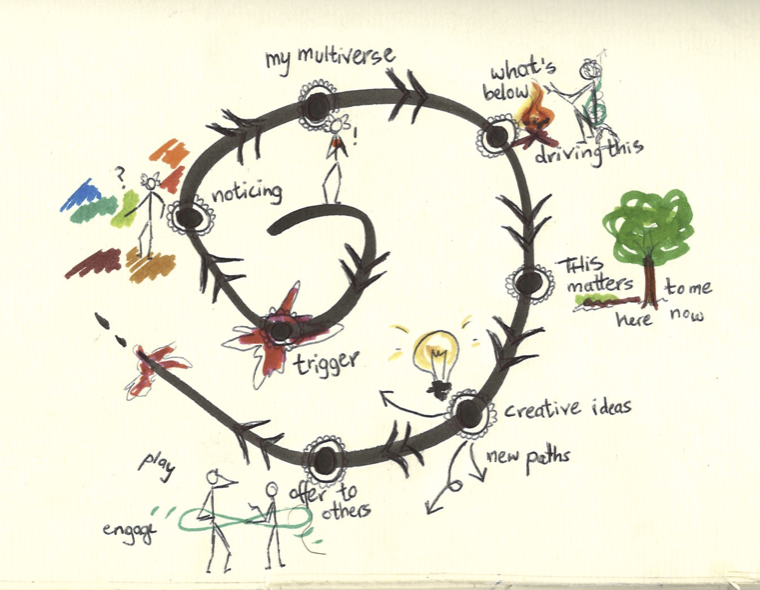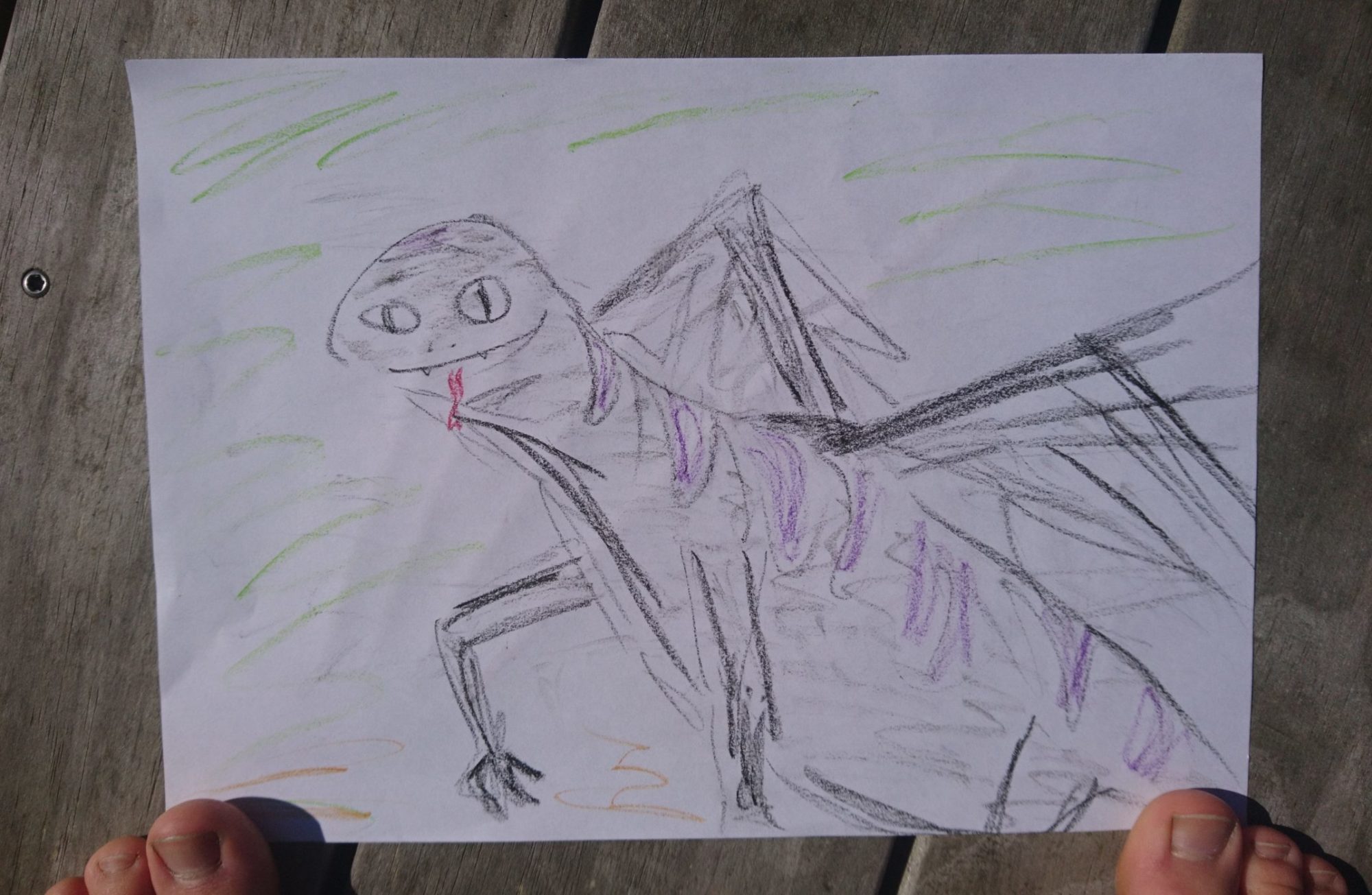When I think about the experiences that I value the most, they involve a strong sense of being engaged or alive (emotions, vibrant body, readiness), as well as a quality of release or difference – shifts in how I encounter others or the world, when new things (perspectives, actions, relationships) become possible.
So how does this vibrancy or creativity come about? I think that the experience of difficulty is key to this process. When I get irritated, angry or confused, that is usually because something important is happening but I can’t fully sense, perceive or point it out yet, and hence don’t know how to deal well with it. So I take difficulty as a reminder to pause, relax (listen) and become curious.
The model or path that I present below summarises what I learned by being interested and curious about difficulty. I would say that this (friendship?) has allowed me to explore and relax into moments of narrowing and tension, to sense more fully and commit to what matters to me.
More recently, I got pulled onto a path that feels a bit like a short cut. It focuses on curiosity about the other. When I find myself getting irritated at somebody’s behaviour, or, when an encounter feels like we approach a stubborn/dead end/head to head confrontation, I look for and trace back to the starting point of that feeling. With that at hand, I check if I care about why it was important (or made sense) for the other to do what they did. If I find some of that genuine curiosity, I ask: how come you did/care about xyz? (or whichever question can transmit a genuine curious impulse). Sometimes its not possible because it is too big / I am still in shock – caught up in my own emotions or lack of clarity. But sometimes it is possible, i think especially in spaces where I have access to my trust.
Ok, so here an overview of different phases or ingredients I discovered along this path from trigger and irritation towards more playful engagement with the world:

- trigger: a moment of intensity, struggle, discomfort – a frown, gasp of fear, sadness, anger, judgement, frustration, murkiness – or a lack of presence and participation, a sense of tightness, blur, numbness or fading away.
- grounding/noticing: taking the time, creating a gap, clearing mental space – “no need to act or understand immediately” – what am I experiencing? what are the facets of this moment, what is coming up? is there any change I can make that would make me feel more comfortable in my body and surroundings? in all senses, things I’d locate ‘inside’ or ‘outside’ of me. breathing, sounds or movement might help (relaxing the shoulders, taking slow, deep breaths, humming – if the situation feels right for it, laying down on the floor, rocking, rolling, sounding, stretching).
- response-ability/my multiverse: engaging with this dynamic ‘fully as mine’. i can and should do with / through it what is mine to do. both in the sense of not getting distracted by focusing on and blaming others, as well as by taking the liberty to really do what I think is needed and right: how is this all meaningful to and affecting me? it might be interesting to go back and notice the ‘trigger’ from this perspective.
~ go slow ~ this shift, and the gradual unfolding of noticing can be a very slow process and take a lot of time. many moments, diverse encounters. - reflection/what’s below, driving this: what valuable aspects or sources of strength/delight are covered below the thing I “judge as unwanted / impossible to participate in”? can I relax this quality of trigger/struggle/”argh!”, and sense into this situation concerning the message it conveys in terms of “this is important to me!”? which quality is this experience inviting me to pay greater attention to, be more welcoming towards, stand in for with my behaviour, or go look for others who support and inspire me in this regard?
- commitment/Willensstärke: once there is greater clarity and moments of opening, i consciously acknowledge that this is what is central for me (here and now). this is my experience and perspective of this situation. i will use my voice, brains, bodies and whatnot in service of this. i will not get distracted by something else (e.g. telling others how they are wrong and attempting to correct their actions; or, pretending nothing happened, numbing my self so as to fit in).
- playful/open engagement: I do/ask/feel this. what happens from there? creative ideas and new paths do emerge with time spent in this attitude. let the process do its work, too. practice rest and patience.
- curiosity about the other: why do you do or care about this? when we speak and act from a (particular) place of curiosity, we learn about ourselves and invite others to do so, too.
